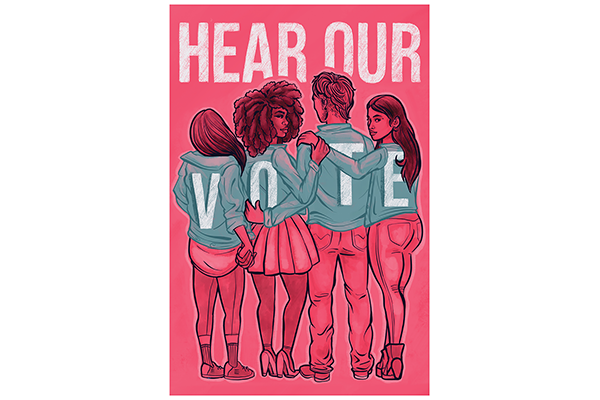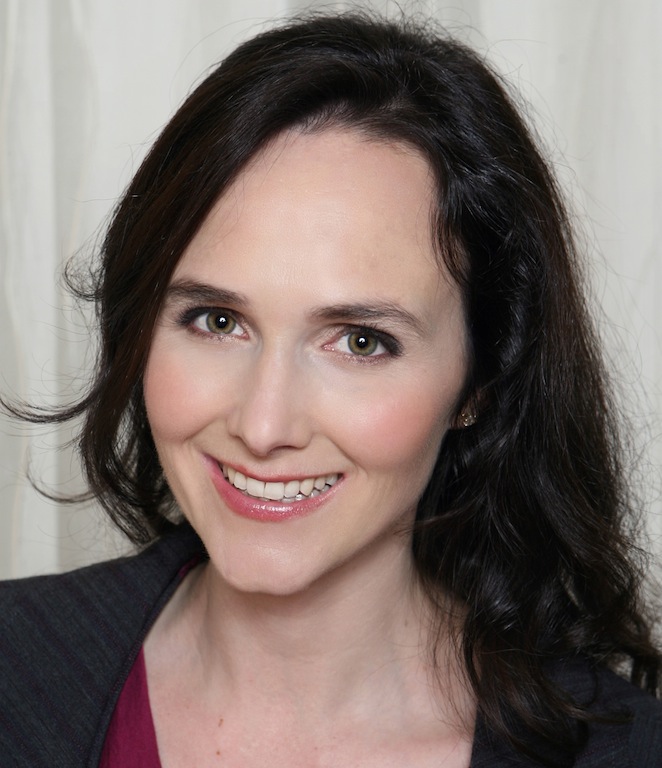Election Day brought ups and downs for voters of all stripes. But one consistent theme across the United States was that voters want democracy to work better and they are ready to vote for change.
Florida passed a measure to restore voting rights to more than a million voters, other states approved automatic voter registration, set new standards to curb gerrymandering. The appetite for democracy reform is evident in all corners of the country. It’s an early but optimistic signal that voters will someday be ready for even deeper reforms, like multi-winner districts with proportional representation.
READ MORE: Cascadia’s Midterm Election Results 2018: Ballot Initiative Edition
Here’s a breakdown of where the biggest democracy gains were made Tuesday:
Voting Rights
Florida voters are often closely divided. Many remember the 2000 presidential election hanging by a chad, and the margin for the gubernatorial race in the Sunshine State is so razor thin, Democrat Andrew Gillum and Republican Ron DeSantis are likely headed toward a recount. But when it came to restoring voting rights to disenfranchised citizens, voters were nearly of one mind. A hefty 63 percent voted in favor of Amendment 4, to restore voting rights to felons who’ve completed their sentences.
Florida’s disenfranchisement law, written into the state’s Constitution after the Civil War, was designed to target Black citizens. Between 2007 and 2011, Governor Charlie Christ automatically restored voting rights for 150,000 Floridians. But after that, Governor Rick Scott implemented an arbitrary process of restoring rights that perpetuated conscious and unconscious biases. In his words, “we can make any decisions we want.”
Voters finally rebelled against the racism, harshness, and unfairness of a system that took away a citizen’s right to vote forever, with almost no recourse. With the passage of Amendment 4, some 1.4 million individuals will now have the opportunity to exercise the constitutional right to vote.
Many states are going the wrong way on voting rights, suppressing voters instead of honoring them. Florida is still doing plenty of suppressing, especially of African-American voters, but the fact that more than three-fifths of voters said yes to restoring felons’ voting rights offers a ray of hope.
Automatic Voter Registration
Oregon was the first state to modernize its electoral process by keeping its voter rolls up to date. The state automatically registers to vote anyone who proves their citizenship to receive a state driver’ license or ID card. Since passing the law in 2015, Oregon has added more than half a million new voters to the rolls. Between 2016 and 2018, Alaska, California, Colorado, District of Columbia, Georgia, Illinois, Maryland, Massachusetts, New Jersey, Rhode Island, Vermont, Washington, and West Virginia followed suit.
Last week, Nevada and Michigan passed automatic voter registration laws, bringing the total to 15 states, plus DC.
Voter Registration and Vote at Home
Michigan’s Proposition 3 went even further and was passed by a two-thirds majority. In addition to automatically registering citizens who prove their citizenship to get an ID card, the proposition makes several other changes to make it easier to vote—any registered voter can request an absentee ballot so they can vote at home (no-reason absentee voting), and citizens can register to vote in-person through Election Day. Finally, the proposition ensures the accuracy and integrity of elections by auditing election results.
On Tuesday, Maryland also passed same-day registration.
Ranked-Choice Voting and Approval Voting
Maine used ranked-choice voting to elect a US Senator and two US representatives for the first time. In one of those races, no candidate won a majority in round one, so candidates with the lowest vote totals will be eliminated and their votes will get transferred to next-choice candidates until someone wins a majority. Without ranked ballots, Republican Bruce Poliquin would have won a seat with fewer than half the votes (46.1 percent) and just a fraction more than Democrat Jared Goldsen (45.9 percent). Because of ranked-choice voting, one of them will go to DC with majority support.
Voters in Fargo, North Dakota, voted to implement approval voting for city officials. Fully 64 percent of voters said yes to Measure 1. In future elections, voters will be able to “approve” of as many candidates as they want. If a voter likes, say, three out of the five candidates for a city council seat, she will be able to vote for all three.
Anti-Gerrymandering
With the next redistricting process coming in 2021, and the number of unfair election outcomes piling up, voters are clearly fed up. Voters of Colorado, Michigan, Missouri, and Utah passed anti-gerrymandering initiatives.
In most states, the legislature draws district maps. Whichever party is in control of the legislature at the time of redistricting has enormous power to tilt the maps to their party’s advantage. Some states try to curb extreme partisan gerrymandering by using committees made up of appointed partisans, experts, or independent people.
- Colorado’s Amendments Y and Z will create two multi-partisan commissions to lead the state and federal redistricting processes. Each commission will have four Republicans, four Democrats, and four people unaffiliated with either party. The Amendments set out map-drawing criteria the commissioners must follow, including keeping communities of interest together, maximizing the number of competitive congressional seats to the extent possible, and not diluting the electoral influence of any racial or ethnic group.
- Michigan Proposition 2 will amend the state Constitution to create an independent citizen redistricting commission to draw both Congressional and state legislative lines.
- Missouri Amendment 1 will ask a nonpartisan expert, recommended by the state auditor and agreed upon by the majority and minority leaders of the state senate, to draw legislative district maps. A citizen commission will review, amend, and approve the maps.
- Utah will create an independent redistricting commission appointed by the governor and state legislative leadership. When drawing the maps, the commission must adhere to standards such as keeping communities of interest together and not using incumbent addresses and partisan data.
Anti-Corruption
In addition to its anti-gerrymandering requirements, Missouri’s Amendment 1 will also lower campaign contribution limits for state legislative candidates, close the revolving door for legislators becoming lobbyists, eliminate almost all lobbyist gifts to legislators, and require legislative records be open to the public.
Similarly, North Dakota’s Measure 1 will ban foreign money from elections, prevent personal use of campaign money, increase transparency, close the revolving door, and create a nonpartisan ethics commission to investigate ethics complaints.
New Mexico, one of only six states without an ethics commission, established an independent commission to investigate and adjudicate ethics violations.
Right here in Cascadia, Portland passed a measure limiting campaign contributions in city races. Oregon is one of a few states with no limits on campaign contributions, leading to insanely expensive local races in the mid-sized city.
Voters are hungry for change
In the face of bitter partisan fights and close races on many of the same ballots, these measures generally passed overwhelmingly in both red and blue states. The takeaway is that Americans across partisan and ideological lines are looking to expand voting rights and fix a broken democracy.
Voters are taking important steps towards modernizing democracy. But no state has yet tried a simple but revolutionary fix: multi-winner districts with proportional representation. Voters in British Columbia are considering it right now, and Americans might turn to it yet.
The independent and multi-partisan redistricting commissions will curb the worst partisan gerrymandering. But unfortunately, they can’t solve the problems inherent with single-winner districts, such as false majorities and wasted votes. Because many Democrats have “packed” themselves into urban districts, even an independent or bipartisan commission will have to choose between drawing maps where some votes count more than others or drawing crazy-looking maps with more competitive districts. A hunger among American voters to reverse the damage of gerrymandering is encouraging. It’s all the more reason to draw attention to the most lasting and guaranteed solution to gerrymandering is to update voting systems from single-winner to multi-winner proportional.









